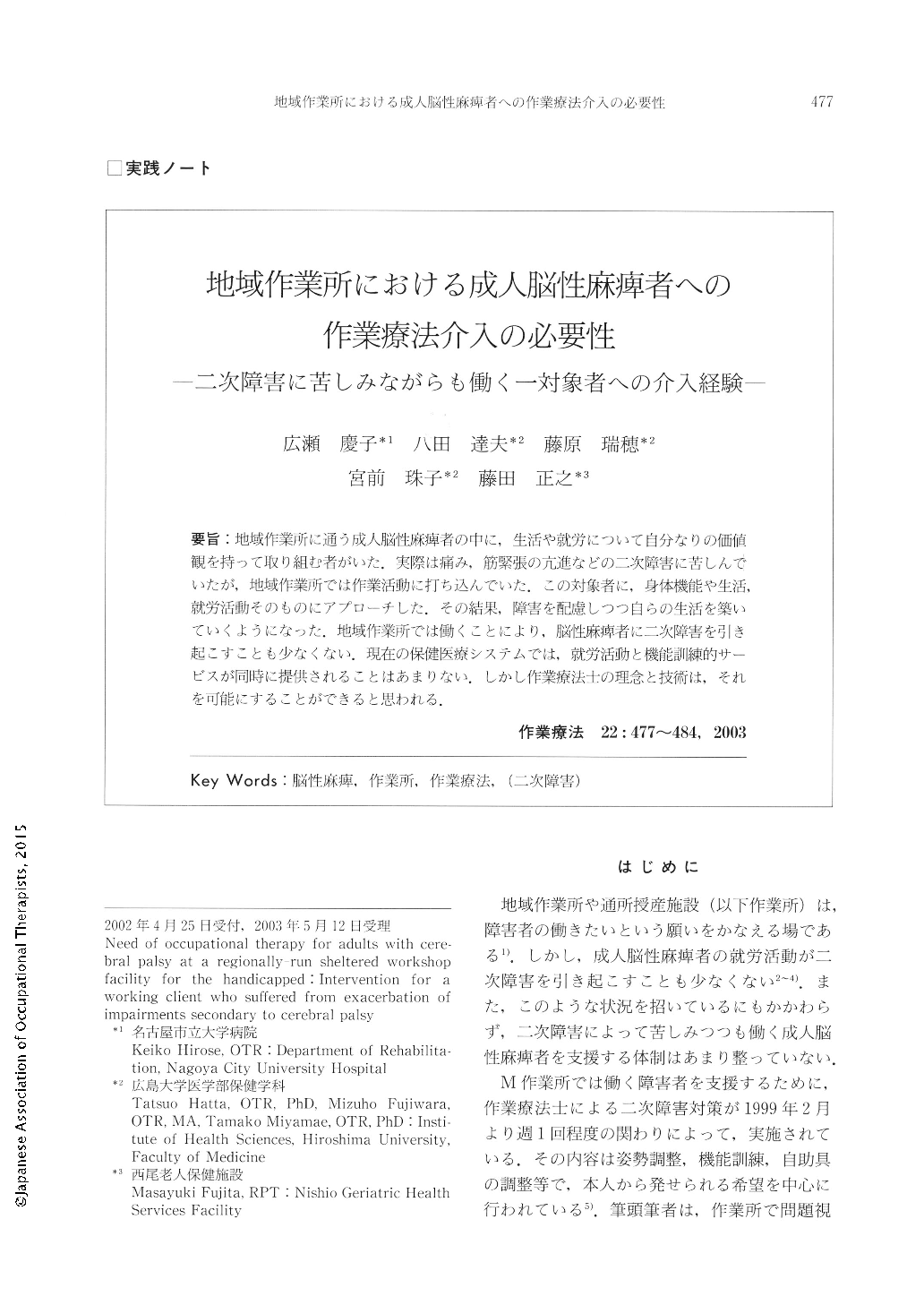Japanese
English
- 販売していません
- Abstract 文献概要
- 1ページ目 Look Inside
- 参考文献 Reference
要旨:地域作業所に通う成人脳性麻痺者の中に,生活や就労について自分なりの価値観を持って取り組む者がいた.実際は痛み,筋緊張の充進などの二次障害に苦しんでいたが,地域作業所では作業活動に打ち込んでいた.この対象者に,身体機能や生活,就労活動そのものにアプローチした.その結果,障害を配慮しつつ自らの生活を築いていくようになった.地域作業所では働くことにより,脳性麻痺者に二次障害を引き起こすことも少なくない.現在の保健医療システムでは,就労活動と機能訓練的サービスが同時に提供されることはあまりない.しかし作業療法士の理念と技術は,それを可能にすることができると思われる.
Here we discuss the effectiveness of occupational therapy for an adult with cerebral palsy working at a regionally-run, sheltered workshop facility for the handicapped. The man, despite suffering from impairments, secondary to cerebral palsy, such as hypermyotonia and pain that were exacerbated by working, expressed a desire to work more effectively and not to be restricted by his handicap. We therefore provided occupational therapy to improve his physical function and employment conditions. We modified his working environment and adjusted his body position in the wheelchair. Following our support of his work at the regionally-run, sheltered workshop facility, which focused on preventing his impairments secondary to cerebral palsy, the patient reported an overall improvement in quality of life and began to take responsibility for improving and maintaining his health.
Unfortunately, it is not rare for individuals with cerebral palsy, working at regionally-run sheltered, workshop facilities for the handicapped, to have impairments secondary to cerebral palsy. The current medical and public healthcare systems do not offer employment and healthcare services at the same time in most cases: while employment services are often provided at sheltered workshop facilities, healthcare services are provided at medical facilities. For this individual, occupational therapy in the work setting improved not only his physical function and work skills but also his quality of life and physical well-being. This case is just one example in which the concept and skills of occupational therapy can be beneficial to disabled people from the perspectives of improved employment and healthcare opportunities.

Copyright © 2003, Japanese Association of Occupational Therapists. All rights reserved.


